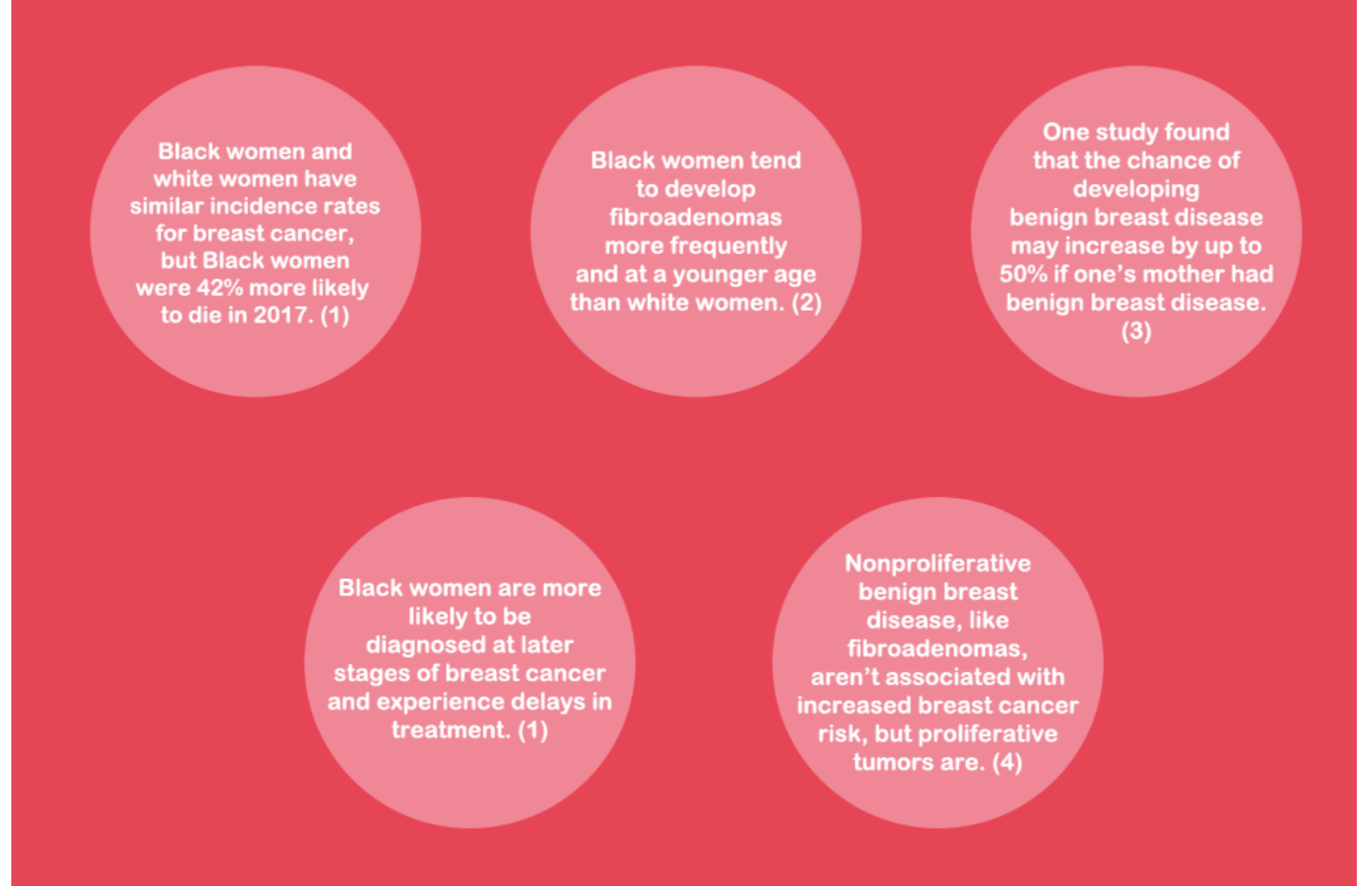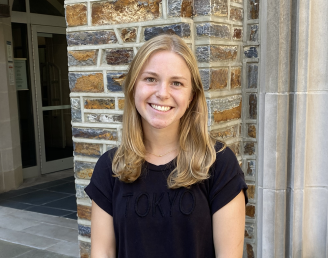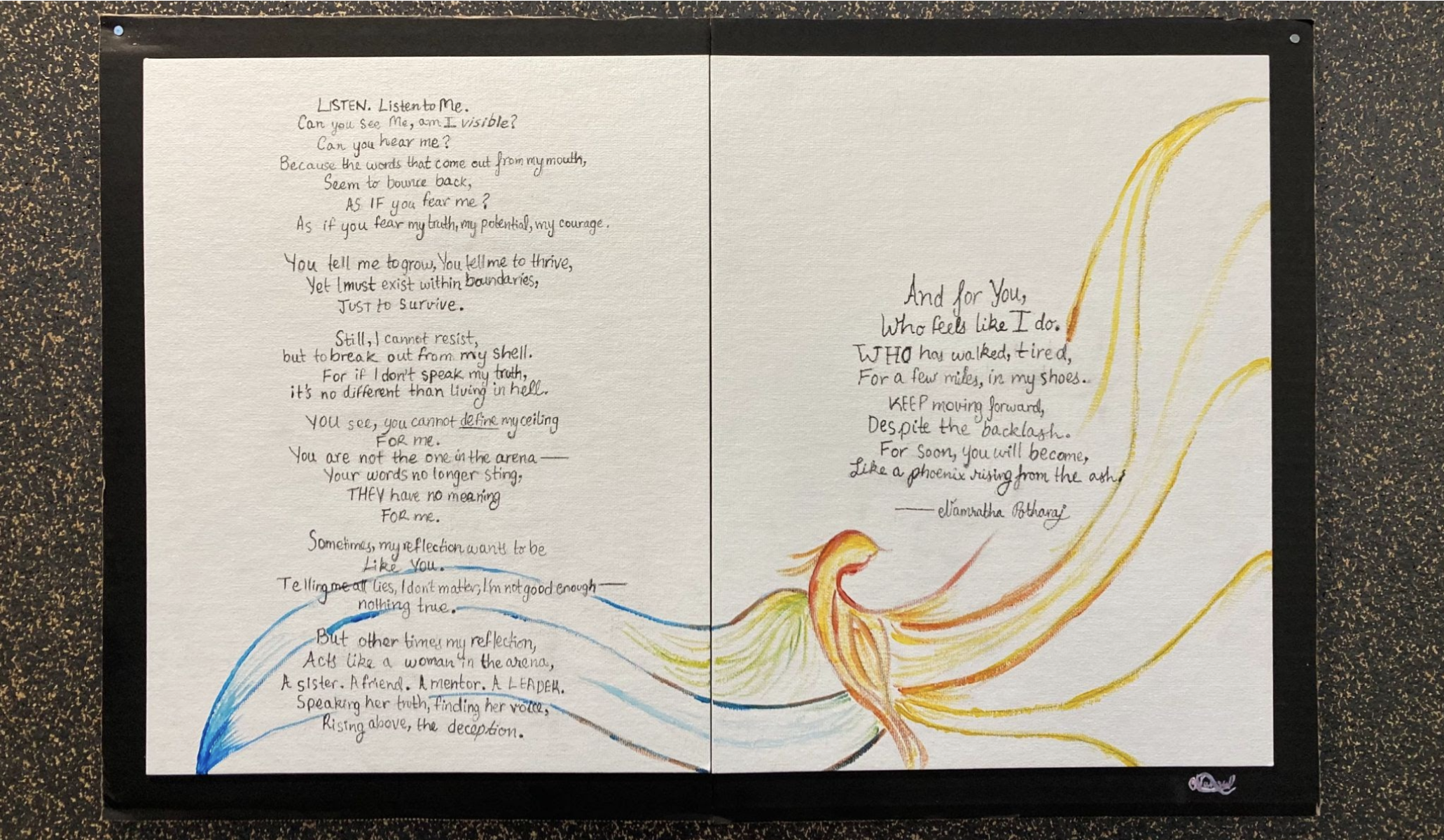Using Storytelling to Break the Stigma Surrounding Reproductive Health
September 21, 2021
By Milena Ozernova ’22
Women’s reproductive health is a taboo topic that carries a powerful social stigma. The archaic rules of menstrual etiquette require women to hide their periods by carrying their hygiene products in secret, brushing off their pain and never discussing their “private” concerns in public. And while many girls are not taught about menstruation at school, they are taught that their femininity is something to be ashamed of and therefore to be suppressed.

To shed light on this issue and combat cervical cancer, a women-led team from Duke University’s Center for Global Women’s Health Technologies developed the Callascope, a state-of-the-art device that helps women take an image of their own cervix and explore their reproductive anatomy. In 2019, the Callascope engineers joined efforts with a Bass Connections team to create an exhibit that explores women’s health through the power of creative storytelling and visual art.
Despite the challenges presented by the pandemic, team members succeeded in developing an impressive study titled “Expressive Writing for Sexual and Reproductive Health” that aimed to understand how creative writing can shift knowledge, attitudes and perceptions related to reproductive health practices.
A year later, a second group of ambitious Duke students joined the Callascope campaign as a part of the new Bass Connections project, Women-inspired Strategies for Health. The WISH project aims to help women in Peru get access to cervical cancer screening and treatment through the use of innovative women-centered technologies and break down the stigma around reproductive health.
In addition to developing healthcare interventions and policy frameworks for promoting the Callascope technology, team members also focused their efforts on the use of storytelling as a way to empower women to take control of their health, communities and lives.

“The standard of care practice for cervical cancer prevention and treatment is a three-step model: screening, diagnosis and treatment,” explains Elizabeth Maydew ’23, a member of the WISH storytelling team. In high-income countries, this model involves direct contact with a medical provider at each stage, but for women in rural and low-income areas, it is easy to fall out of the healthcare system due to the circumstances beyond their control. Some women don’t have the necessary resources to pay for the care while others cannot afford to travel to Lima, the capital of Peru, to participate in all treatment stages.
“The goal of this Bass Connections project is to reduce the number of touch points in the care cascade to just one,” Elizabeth says. With the Callascope and the Pocket Colposcope, women can take an image of their cervix in the privacy of their home and send it to their local healthcare provider. As a result, women have to visit the hospital only once — to get their diagnosis and treatment at the same time.
“These women come from marginalized and indigenous communities, from rural areas without many resources, so many organizations tend to utilize a top-down approach falsely claiming ‘We’re from the U.S., so we know what’s best for you,’” Elizabeth explains. “[To prevent this], our project focuses on the ethics of storytelling; our goal is to center the women in these communities in everything that we do.”
For this Bass Connections project, storytelling has become a crucial way to listen to women’s voices and develop a plan of action designed specifically for their needs, not imposed on them. Team members sought to understand how women in the rural areas of Peru approach their sexual and reproductive health, how they feel about it, and how it is stigmatized. The team then took this understanding to help women use the Callascope technology in a way that would be comfortable for them, in a way that didn’t require women to change their regular practices.
“Women’s voices have been silenced throughout all of history,” Elizabeth says, “and a vacuum of women’s experiences [and] lack of data on women’s health make storytelling particularly effective in promoting reproductive health, helping us take another step toward better understanding the issue.”

To continue the legacy of this Bass Connections project, Duke’s Center for Global Women’s Health Technologies asked local and student writers and artists to share their personal experiences and stories about female anatomy and global health. The artists’ work has become a foundation for a new virtual and an in-person showcase, Summer of Storytellers, a platform for women to voice their unique perspectives and spread awareness about sexual and reproductive health.

These stories expose the deep, undisguised truths about female anatomy, but most importantly, the truths about women’s lives — their odds of dying from childbirth, the emotional loss following a cervicectomy, period shaming, the relationship between body image and weight loss, breast surgery in the time of COVID, and much more. The exhibit breaks the silence around female health and serves as a powerful force of self-expression, self-love and acceptance.
“This therapeutic practice treats [my mother’s] body as an exquisite object to develop a healthy self-image,” writes Alicia Collins, the talented artist behind the Study of Mama project. “While painting my mother’s body, I began to understand the traumas that her body endured. It brings up memories of my childhood — the good ones, the bad ones, and those that I’d forgotten.”
The team hopes that the process of self-exploration through the Callascope technology coupled with women’s acceptance of their own bodies will become the first step toward destigmatizing sexual and reproductive health and bringing awareness to the global and domestic injustices surrounding it.
Duke University senior Milena Ozernova is a Bass Connections communications assistant majoring in Political Science. Milena loves to travel around the world, write articles on the issues that matter to her and the student community, and take photographs of street cats.
Learn More
- Explore the related Spring 2019 art exhibit, developed in conjunction with the Bass Connections team’s work.
- Propose a 2022-2023 project by November 1.
- Browse the Bass Connections 2020-2021 Annual Report.
